[Wanderlust Tips March 2019] When a long day has passed and night has fallen, the evening is the ideal time for exploring the many famous night markets on the island of Taiwan. The markets are a vibrant gathering of colourful street stalls and the best sidewalk dishes the island has to offer. For a long time, night markets have played an important role in the life of Taiwanese people, becoming a unique feature of the culture of Taiwan.
[rpi]
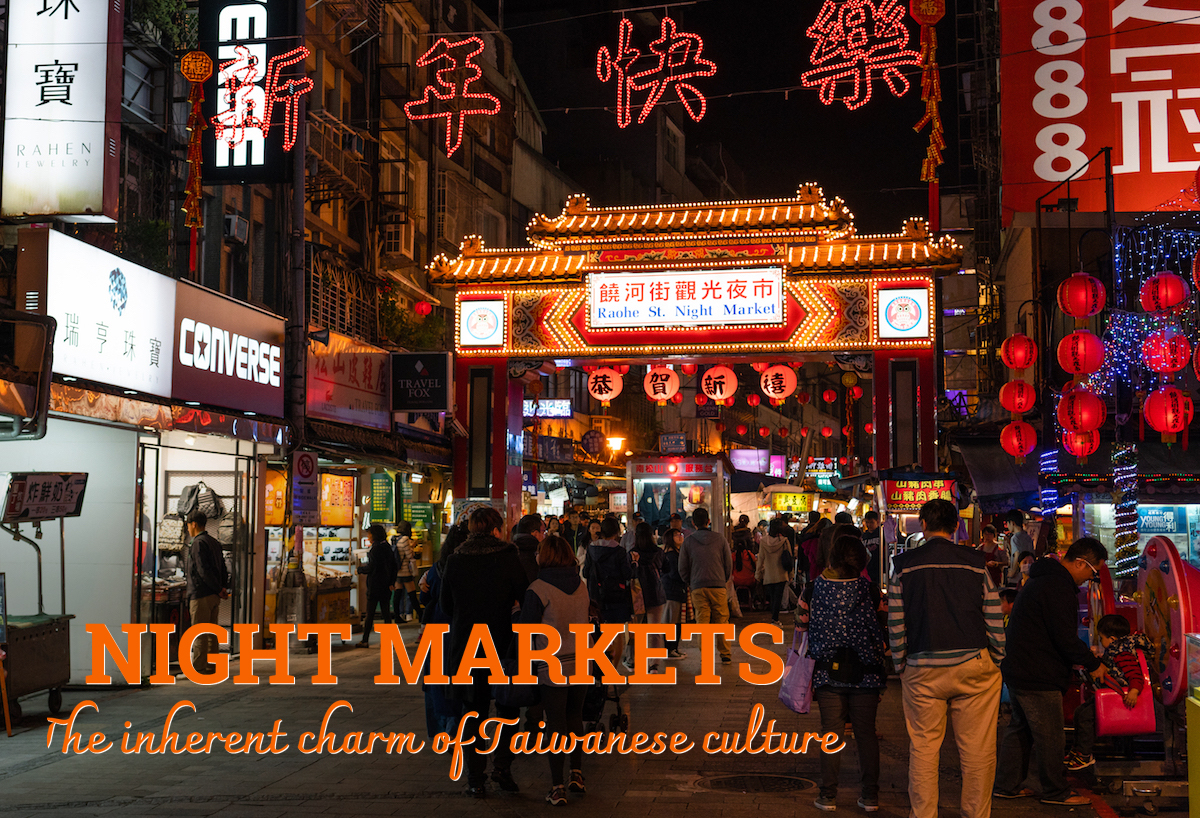
A RICH HISTORY
The concept of the night market traces its roots back to the medieval Chinese Tang Dynasty (618 – 907). However, the Tang government put strict restrictions on night markets and their operations in A.D. 836, and it wasn’t until the Song Dynasty (960-1279), that night markets began to grow and play a central role in Chinese nightlife. These markets included restaurants and handicraft shops that were frequently located near business districts and red light districts.
Continuing on from traditional Chinese culture Taiwan’s night markets originated as small local markets in big cities. Most of them started as gatherings on street corners or near temples and offered traditional handicrafts and traditional medicines. After the 1950s, the night markets of the old urban areas of Taipei spread out into the suburbs and new industrial zones. Ones that are held periodically can still be found in rural areas of Taiwan.
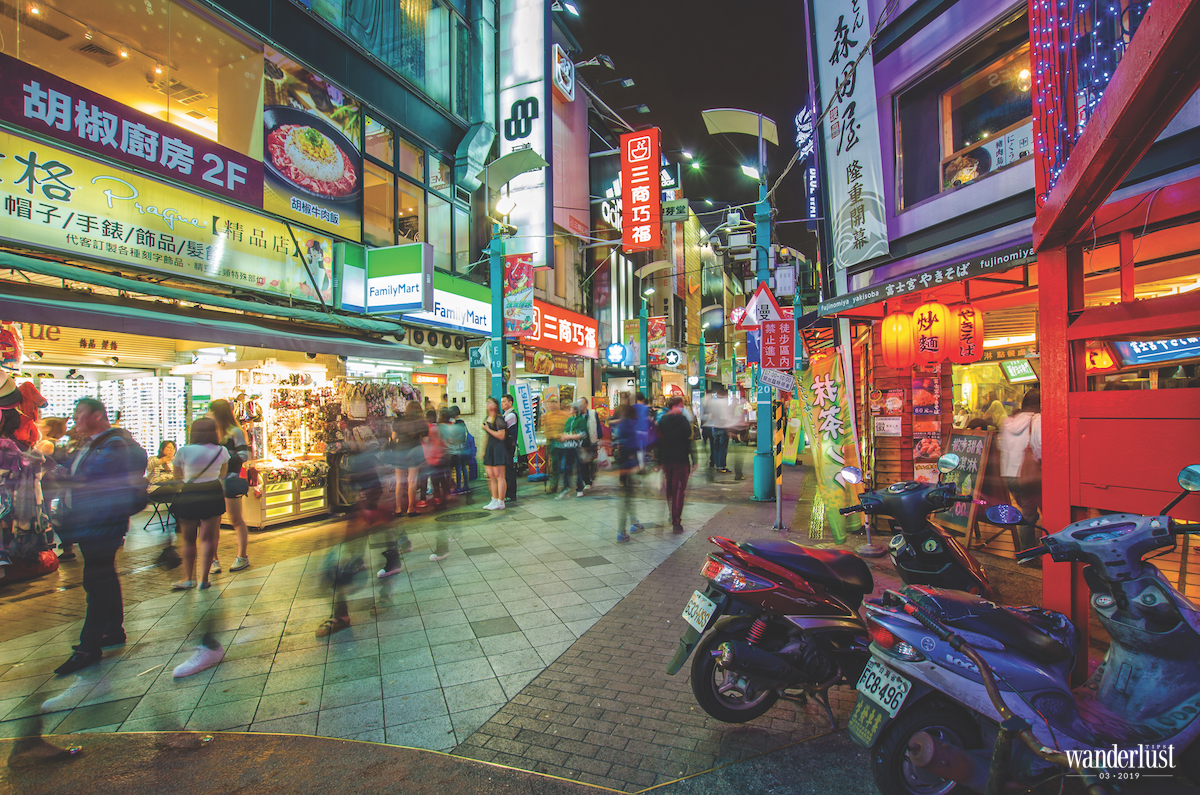
Traditionally night market vendors sold xiaochi – hearty Taiwanese snacks and dishes such as rice, noodles, tofu, vegetarian dishes, pastries, sauces, pickles and beverages. As time passed and the popularity of the markets grew, the items on sale at the night markets expanded to include more upscale items like housewares, clothes and souvenirs. Along with that, large chains started opening franchises in or near the night markets including fast food outlets such as McDonald’s and the convenience store chain 7-Eleven, which were then followed by fashion outlets. The purpose of the original night markets was everyday trading, but now they have become popular cultural focal points in Taiwanese people’s lives.
UNIQUE CULTURE
Local people and international tourists alike love to visit the night markets on the island of Taiwan. According to the Taiwan Tourism Bureau, some 70% of tourists to Taiwan visit a night market.
Many vibrant features make an unforgettable impression on visitors when they wander around the night markets, the bustling atmosphere, the abundance of items on offer like clothes, cosmetics, jewellery, souvenirs, and the shimmer of lanterns on Taiwan’s streets.
Most night markets in Taiwan open from 5pm and close at midnight. There are not only stalls selling pretty items but also reasonably priced restaurants, so visitors can enjoy shopping while tasting delectable food. Some quintessential dishes of Taiwan are fried chicken, rotten tofu, iron eggs, dim sum and grilled skewers that are eye-catching and delicious. Enjoying street food at the night markets is also a way for visitors to understand the local people’s enchanting food culture. Taiwan has many famous night markets, from Ximending and Shilin in Taipei to Fengjia in Taichung, and Liuhe in Kaohsiung. Each market is popular for its different goods, for example, Shilin is famous for clothing items, while Fengjia is so for Ta-a noodles (or danzi noodles) and coffin bread, and Ximending is a favourite to buy electronic goods.
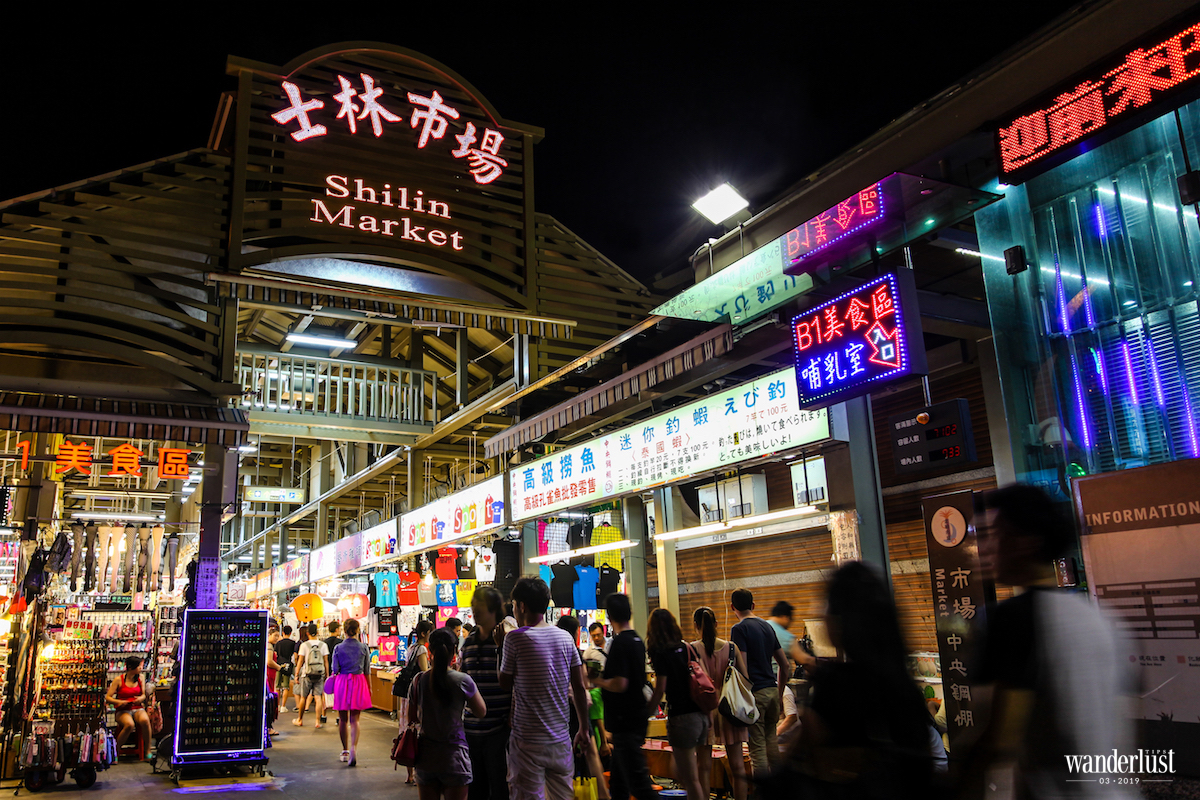
Besides this, the night markets are places of entertainment for people of all ages. There are many fun games such as toy claw machines , ring toss, fish or shrimp fishing in pots, shooting balloons with air guns or even playing mahjong. The games at the night markets always attract crowds of people, especially curious travellers as they are exploring the island.
The night markets of Taiwan showcase the cultural beauty of the community activities of indigenous residents in each area. Tourists can enjoy shopping for their favorite items with attractive prices while eating special Taiwanese delicacies, and all the while having the chance to immerse themselves in the rich spiritual life and lifestyle of the friendly locals in the heart of this modern urban landscape.
POPULAR NIGHT MARKETS IN TAIPEI
When referring to Taiwan’s oldest and most famous night markets, it is impossible not to be reminded of Taipei City. Taipei is the capital of Taiwan – the heart of the island. It is famous for its diverse landscapes, rich culture and excellent cuisine. After a long day enjoying its scenic spots, the night is the best time to take a leisurely stroll and soak up the bustling atmosphere of Taipei’s night markets.
Raohe Street
Raohe Street Night Market is one of Taipei’s oldest night markets. Visitors can find everything from everyday items to electronics. It is also a great place to buy souvenirs for friends and relatives. The characteristic products of Raohe Street Night Market are wooden and bamboo handicrafts, embroidered handkerchiefs and Buddhist-related items, all of which are iconic merchandise in Taiwan.
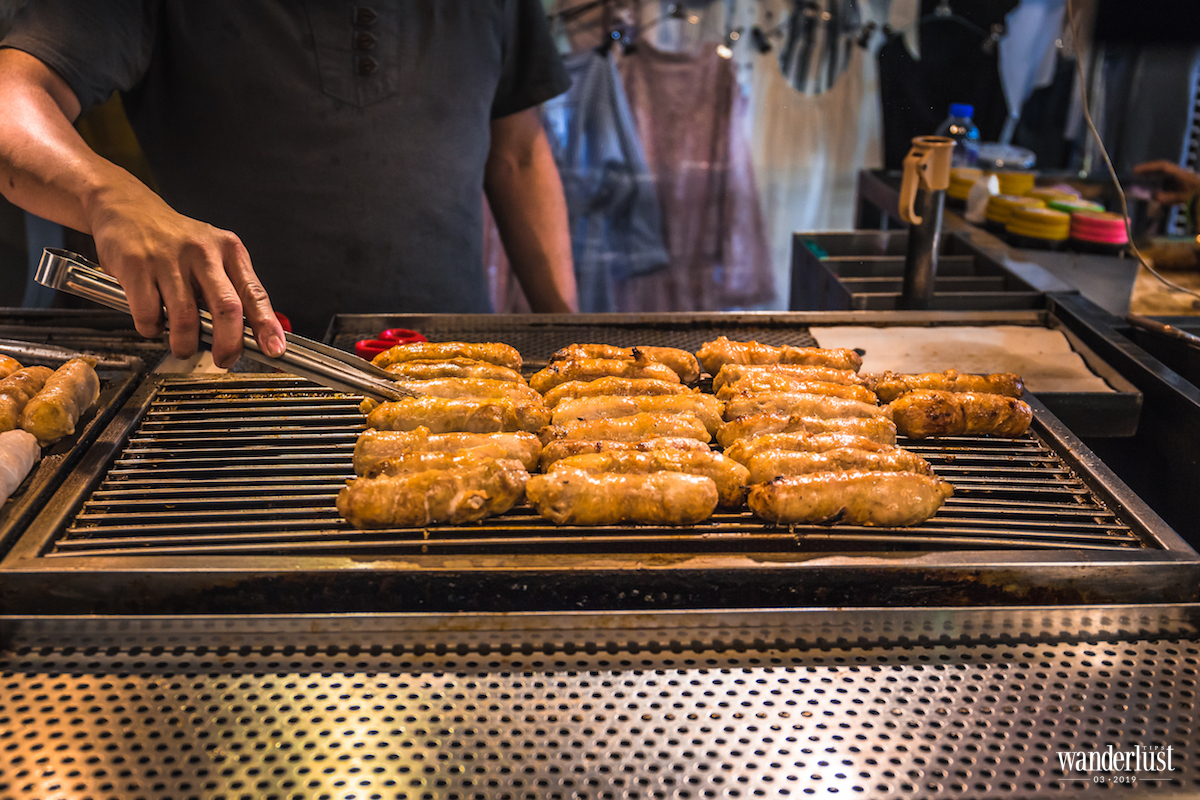
Time: 5pm – 12pm
Location: Raohe Street near Songshan Station, Songshan District, Taipei.
Ximending
In Ximending Night Market, visitors can easily find the latest fashion items and trending accessories of good quality and at affordable prices. There is also a wide selection of Taiwan’s rich cuisine here, especially dishes made from duck like steamed duck, roasted duck, crispy fried duck tongues, and Ay-Chung Flour rice noodles are also very popular.
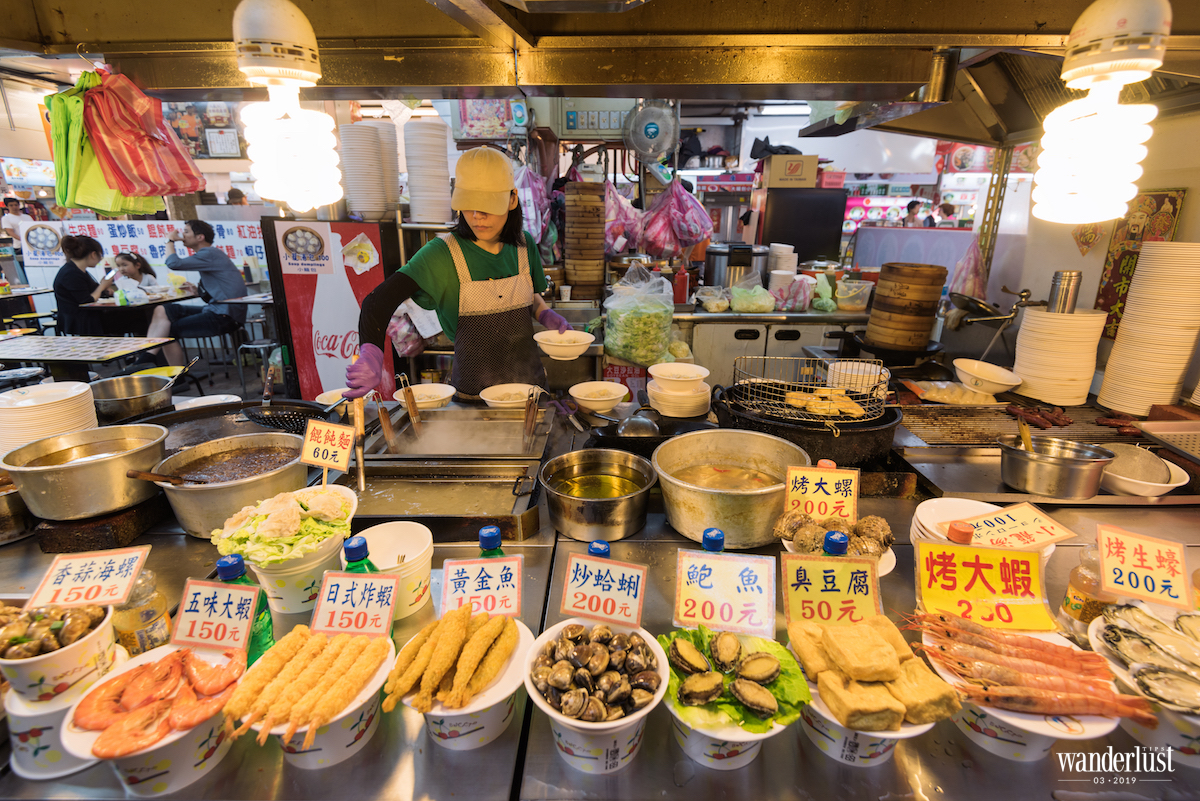
Time: 11am – 11pm
Location: Hanzhong Street, Wanhua District, Taipei.
Shilin
Shilin Night Market is divided into two sections: one for food and one for other items. There are avant-garde fashion items and accessories with a vast assortment of styles and designs, all at bargain prices. The food here is also mouth-wateringly attractive, visitors should sample the many dishes served up here such as steak, hot dumplings, dim sum, sliced noodles, liver soup, squid soup, and oyster omelettes.
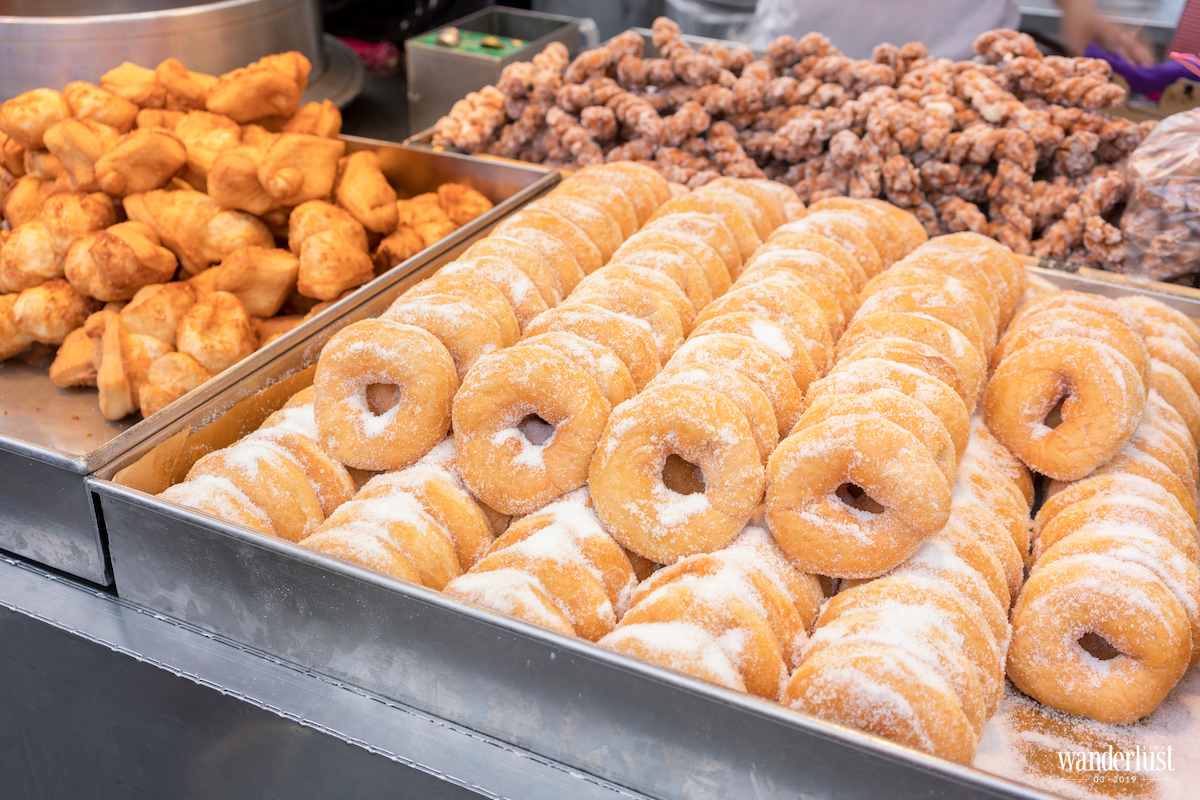
Time: 3.30pm – 1am
Location: Near Yangming Theater between Jihe Road, Dadong Road and Dana Road, Shilin District, Taipei.
Vo Thanh Tung | Wanderlust Tips


[…] Taiwan is considered to be a paradise for tea. From tea ceremonies and restaurants to popular eating […]
[…] have a passion for historical stories and want to get a better understanding of the unique Wuhan culture, the Hubei Provincial Museum is a must-visit destination on your travel bucket list. […]
[…] an author, facebooker, culture and travel blogger, and a yoga teacher. Beside spending time writing and teaching yoga, I love […]